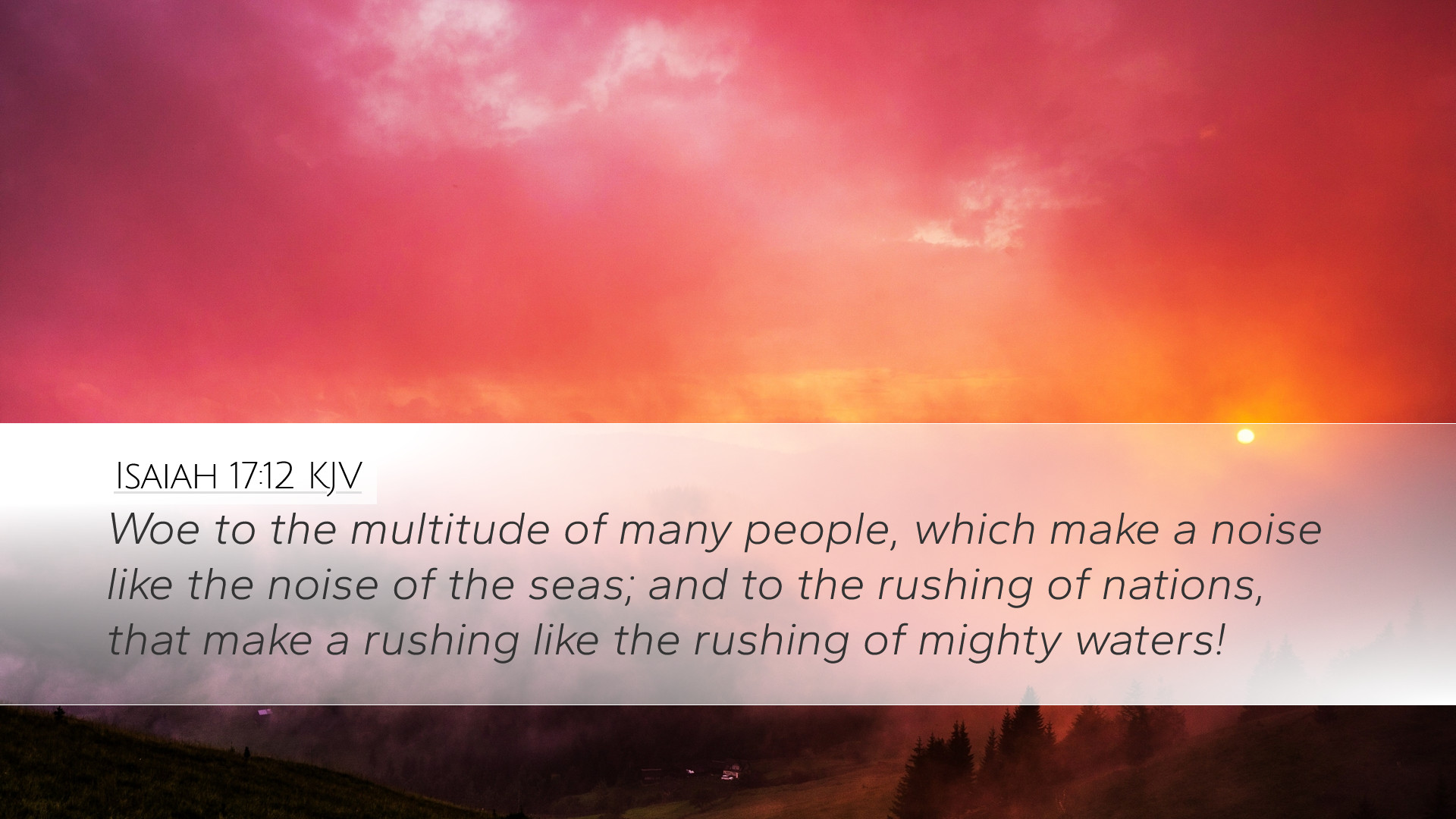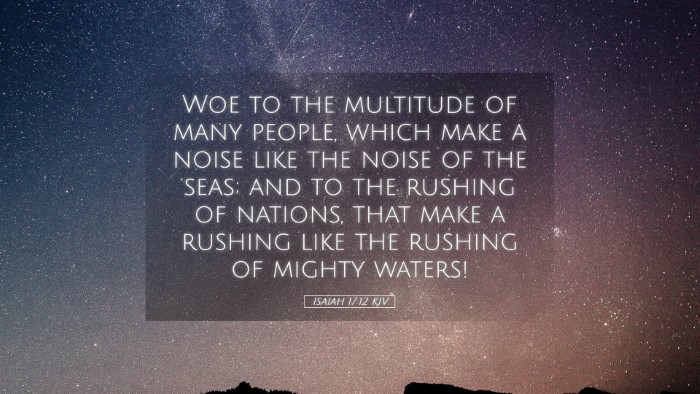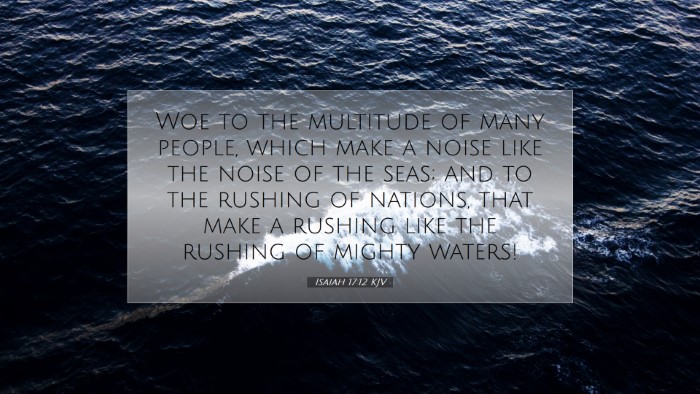Commentary on Isaiah 17:12
Text of Isaiah 17:12 (KJV): "Woe to the multitude of many people, which make a noise like the noise of the seas; and to the rushing of nations, that make a rushing like the rushing of mighty waters!"
Introduction
The prophetic book of Isaiah offers a profound lens into the dynamics of God's judgment and mercy across His created order. Isaiah 17:12 captures a vivid image of the tumultuousness of nations and the chaos that accompanies their collective actions. This verse encapsulates themes of divine sovereignty, the futility of human strength, and the necessary humility before God.
Overview of Commentaries
- Matthew Henry: Emphasizes the despair caused by overwhelming nations and their noise, likening their tumult to the seas. He explores the implications of such clamor in light of God’s eventual judgment.
- Albert Barnes: Provides a detailed exposition on the metaphor of noise and rushing waters. He draws parallels with historical nations and underscores the futility of their collective might against God.
- Adam Clarke: Offers insights on the prophetic nature of the verse, discussing how it reflects Israel's predicament amid adversarial nations and the resultant cries to God for relief.
Analysis
1. The Noise of Nations
Matthew Henry highlights the cacophony generated by the multitude of people—resembling the noise of roaring seas. This imagery evokes a sense of chaos and disorder that reigns among the nations. In biblical literature, seas often symbolize tumult and the unknown, a fitting metaphor for nations consumed by their desires and ambitions. The noise suggests agitation, restlessness, and an underlying sense of impending judgment.
2. Divine Sovereignty
Albert Barnes expands upon the hopelessness evident in human effort depicted through this noise. He notes that no matter how much strength and numbers the nations mustered, they are ultimately impotent in the face of divine will. The contrast between their noise and the quietude of God’s purpose serves to remind His people of the sovereignty and control God maintains over creation. The passage warns against misplaced confidence in human alliances and military might.
3. Historical Context
Adam Clarke relates this verse explicitly to Israel’s circumstances, emphasizing how the surrounding nations—Assyria, Syria, and others—presented overwhelming threats to the nation. The historical context highlights Israel's vulnerability and God’s protective promise. Clarke notes that the prophetic voice serves not only to predict disaster but also to call for a return to reliance on God amid threats from powerful adversaries.
Theological Implications
- Human Limitations: This commentary reframes the perspective on human initiatives against God’s purpose. It serves to teach that irrespective of appearance, human endeavors will ultimately yield to divine authority.
- Call to Dependence: A clear theological message arises from this passage urging believers to rely solely on the Lord for safety and guidance, rather than succumbing to worldly fears.
- The Nature of Judgment: The prophecy reminds both ancient and contemporary audiences of the swift judgment that follows human rebellion—a recurring theme throughout the prophetic literature.
Practical Applications
For pastors and theologians, Isaiah 17:12 presents critical reflections for contemporary ministry:
- Encouragement in Difficulty: Believers may find solace in understanding that adversity does not go unnoticed by God. The seeming chaos around them can be aligned with divine oversight as a reminder of God’s ultimate authority.
- Proclamation of Truth: Church leaders are encouraged to speak boldly against the noise of secularism and injustice, grounded in the concrete hope that God will establish His kingdom despite overwhelming opposition.
- Prayer for Nations: This scripture calls for intercessory prayer for nations in turmoil, recognizing the potential for divine intervention amidst human strife.
Conclusion
Isaiah 17:12 serves as a multilayered commentary on the nature of nations, the profound stillness of God amid chaos, and the necessary humility that believers are called to embrace. Through the combined insights of Matthew Henry, Albert Barnes, and Adam Clarke, one can appreciate the richness of this text as it beckons us toward reliance on divine sovereignty against the clattering noise of the world.
As recipients of this wisdom, pastors and scholars are invited to not only engage with the scripture but also to embody its truths in a contemporary context—effectively proclaiming hope amid tumult and reminding the faithful of God’s steadfastness in uncertain times.


